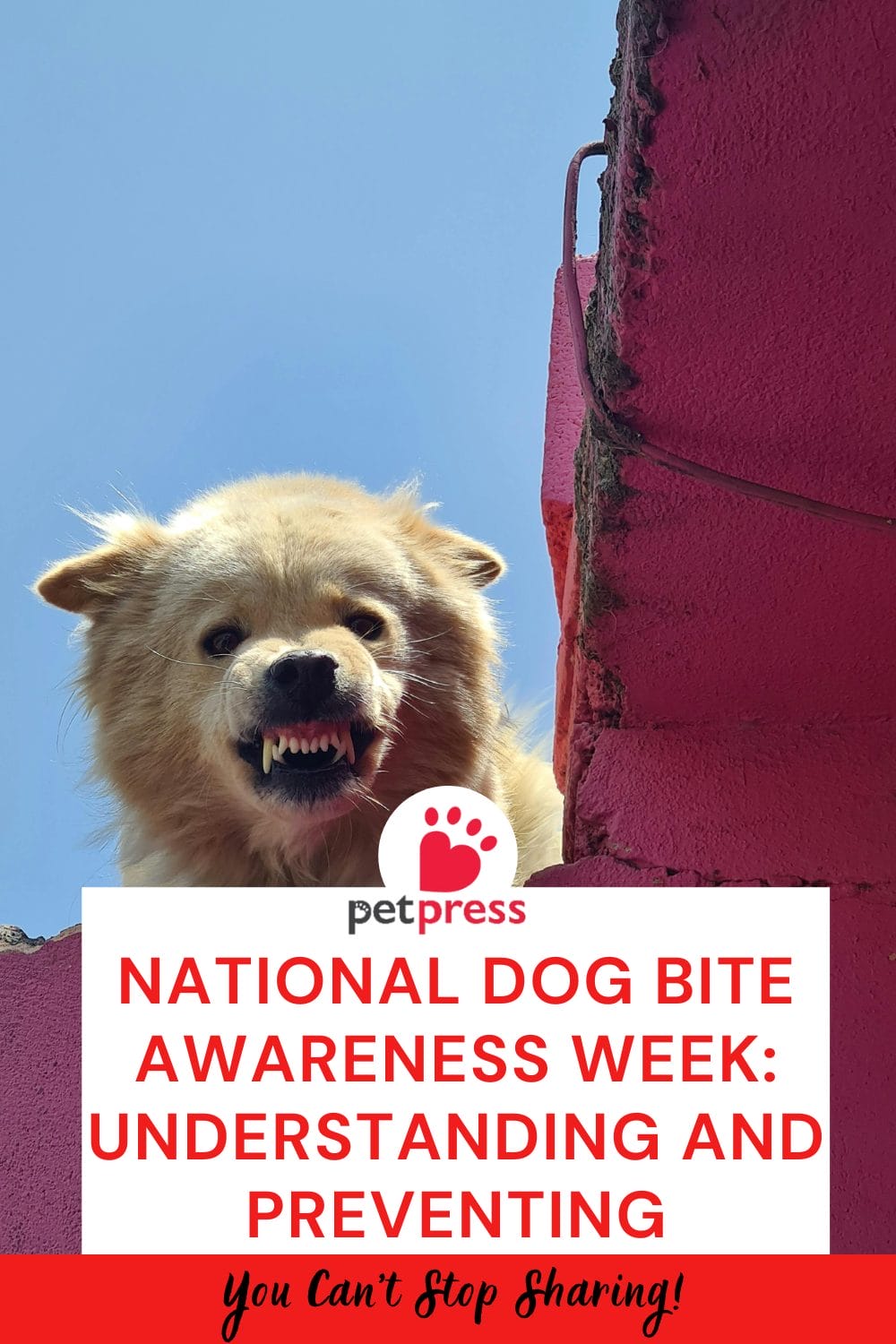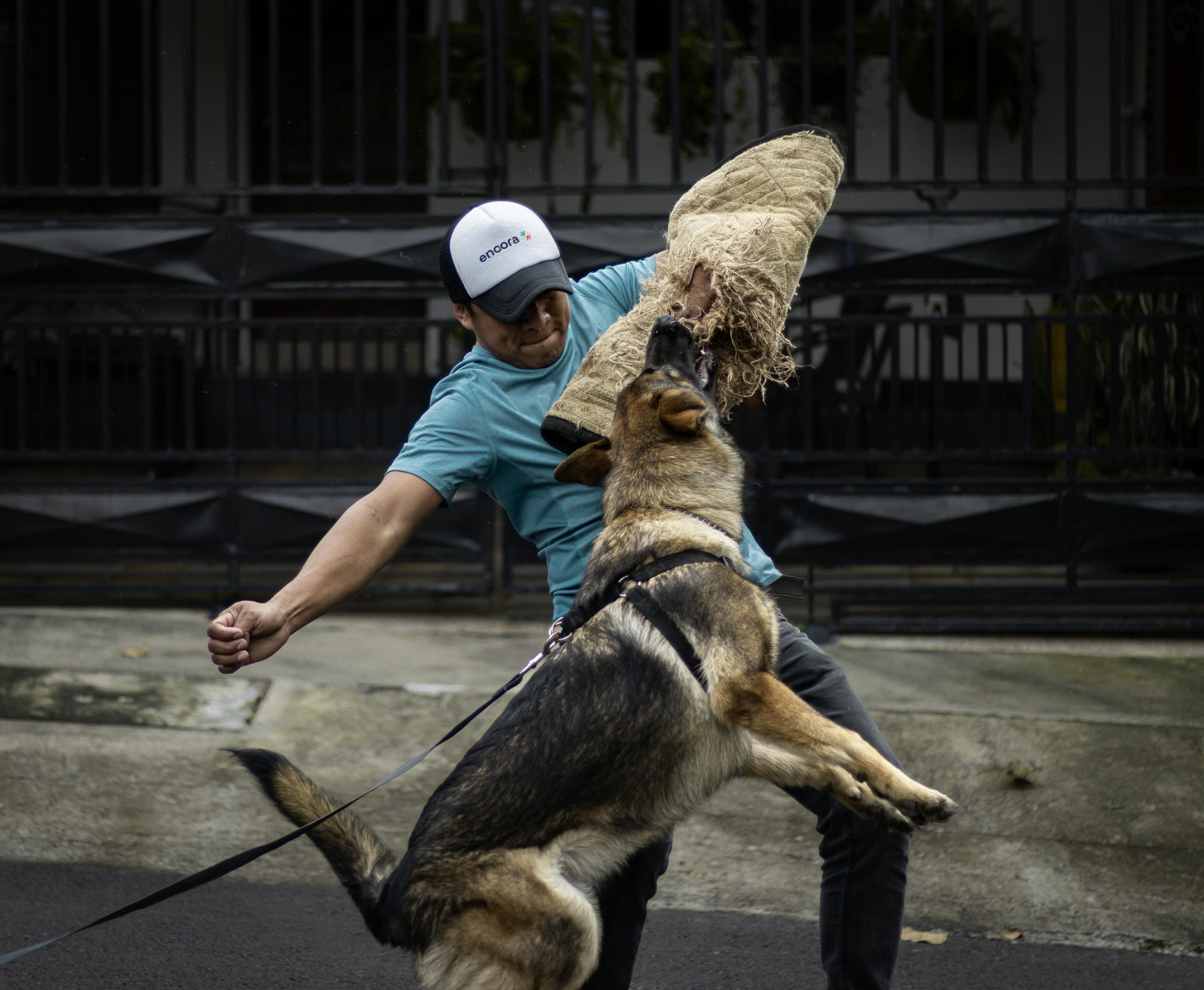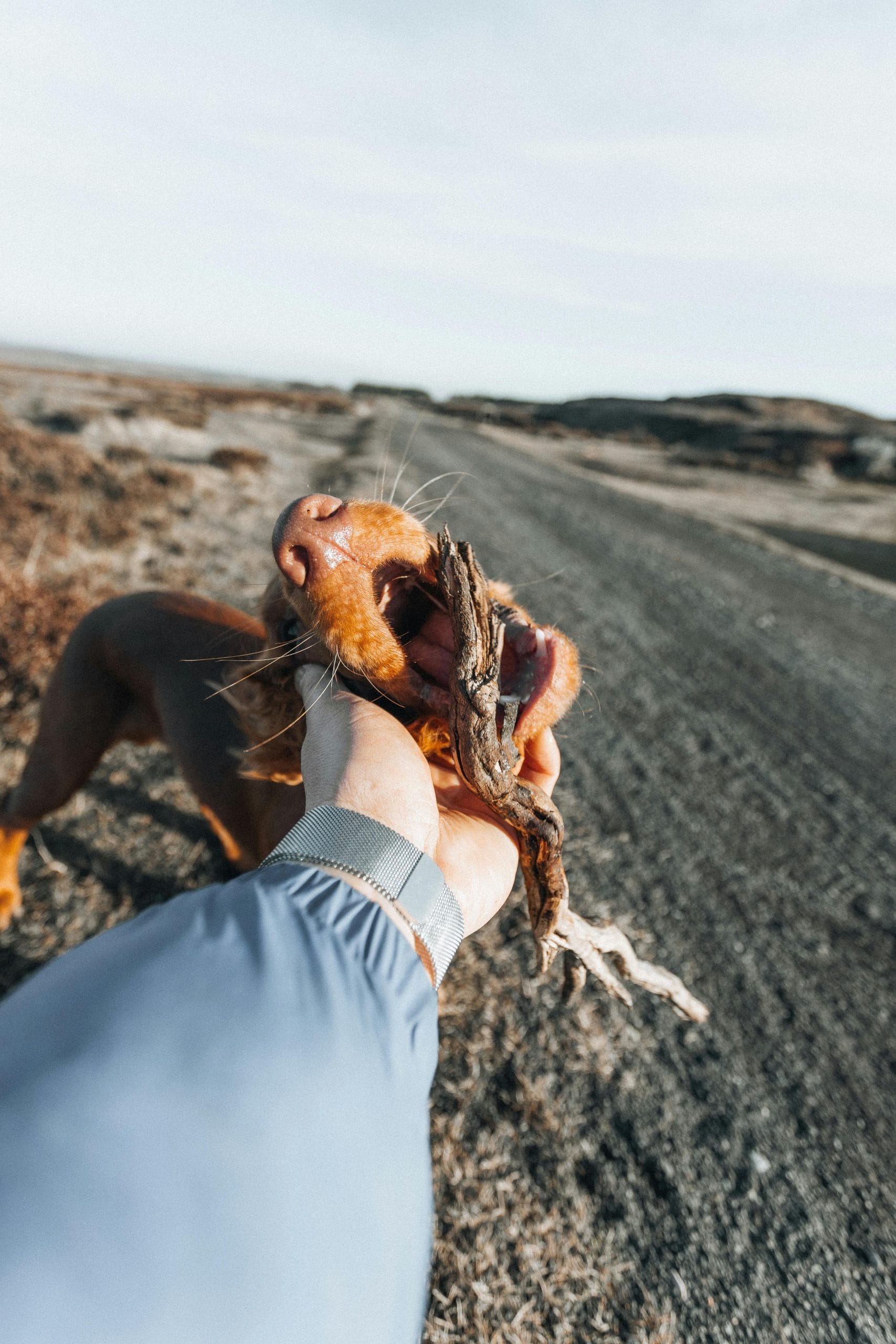
National Dog Bite Awareness Week is a critical initiative that takes place June 2-9 to educate the public about dog bite prevention and responsible pet ownership.
From understanding canine behaviour to implementing safety measures, this week serves as a reminder of the importance of fostering positive interactions between humans and dogs.
History
National Dog Bite Awareness Week was established by the American Veterinary Medical Association (AVMA) in collaboration with the United States Postal Service (USPS) to raise awareness about dog bite prevention.
It typically occurs during the third full week of May each year.
Since its inception, this week has evolved into a comprehensive campaign supported by various organizations, including animal welfare groups, veterinary professionals, and government agencies.
How to Celebrate National Dog Bite Awareness Week:

Educational Events
Attend seminars, workshops, or webinars conducted by local animal shelters, veterinary clinics, or community centres.
These events often cover topics such as dog behaviour, canine body language, and responsible pet ownership.
Spread Awareness
Utilize social media platforms to share informative posts, infographics, and videos about dog bite prevention.
Encourage friends and family to participate in discussions and share their experiences.
Community Outreach
Organize or participate in outreach programs aimed at educating children and adults about dog safety.
This may include visiting schools, hosting informational booths at local events, or distributing educational materials.
Promote Responsible Ownership
Advocate for responsible pet ownership by emphasizing the importance of proper training, socialization, and supervision of dogs.
Encourage pet owners to spay/neuter their pets and keep them up-to-date on vaccinations.
Support Legislation
Stay informed about local and national laws on dog ownership, licensing, and leash regulations.
Get involved in advocacy efforts to promote responsible legislation that protects both humans and animals.

How to Prevent Dog Bites?
Here are the tips to prevent dog bites.
- Socialization: Expose your dog to various people, animals, and environments from a young age to promote positive social behavior.
- Training: Enroll your dog in obedience classes to teach basic commands and reinforce good behaviour. Consult with a professional trainer if needed.
- Supervision: Always supervise interactions between children and dogs, especially when introducing them to unfamiliar dogs.
- Body Language: Learn to recognize signs of stress, fear, or aggression in dogs, such as growling, barking, or stiff posture. Avoid approaching dogs exhibiting these behaviours.
- Respect Boundaries: Teach children and adults to respect a dog’s personal space and avoid disturbing them while eating, sleeping, or caring for puppies.
- Proper Handling: Educate yourself and others on safe handling techniques, such as approaching dogs calmly and avoiding sudden movements.
- Avoidance of Risky Situations: Teach children not to approach unfamiliar dogs, especially if the dog is unaccompanied or restrained.
Precautions to Consider
- Dog Breed Consideration: Research and understand the characteristics and temperament of different dog breeds before bringing one into your home.
- Supervision During Play: Monitor playtime between dogs to prevent conflicts or injuries. Intervene if play becomes too rough or escalates into aggression.
- Secure Enclosures: Ensure that your yard is securely fenced to prevent dogs from escaping and encountering unfamiliar individuals or animals.
- Identification: Keep identification tags with current contact information on your dog’s collar and consider microchipping as an added precaution.
- Medical Care: Schedule regular veterinary check-ups and promptly address any health or behavioural concerns to prevent potential triggers for aggression.

Conclusion
National Dog Bite Awareness Week serves as a crucial reminder of the importance of responsible pet ownership and canine safety.
By understanding canine behaviour, implementing preventive measures, and promoting education, we can reduce the incidence of dog bites and foster harmonious relationships between humans and dogs.
Frequently Asked Questions
Dogs may bite for various reasons, including fear, pain, territoriality, or feeling threatened. Understanding the underlying cause can help prevent future incidents.
Watch for signs of stress or aggression, such as growling, barking, raised hackles, or a stiff posture. If a dog displays these behaviours, give them space and avoid provoking them further.
While breed can influence behaviour to some extent, individual temperament and upbringing play significant roles. Any dog, regardless of breed, has the potential to bite if not properly trained or socialized.
Avoid making sudden movements or direct eye contact, and slowly back away without turning your back on the dog. If the situation escalates, protect your vital areas and seek assistance from a nearby authority figure or animal control.
Teach children to always ask permission before petting a dog and to approach slowly with an open hand for sniffing. Encourage gentle interactions and remind them to respect the dog’s boundaries. Additionally, educate them on recognising and responding to signs of aggression.
- How to Celebrate a Dog’s First Birthday on a Budget: 2026 Guide - February 18, 2026
- Best Shampoo for Sensitive Skin Dog Grooming: 2026 Guide - February 12, 2026
- 40+ Aesthetic Names for White Dogs (2026 Unique & Rare List) - February 6, 2026


GIPHY App Key not set. Please check settings